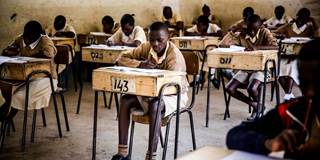Poor countries like Malawi are doing what they can to improve educational quality and access. But there is only so much that a country with modest means can achieve, which is why global leaders, when they meet in Senegal early next year, must recommit to investing in the education of all children.
BLANTYRE, MALAWI – In September, I was among a group of world leaders who gathered in New York City to discuss ways to improve access to quality education. Around the world, hundreds of millions of children are either not receiving basic schooling, or are attending schools but not learning. We gathered to devise a way forward.
The crisis that I discussed with heads of state from France, Senegal, and Norway, along with leaders from the United Nations and global education advocates, is not an abstract problem unfolding in a distant land. It is a crisis that has reached my doorstep in Malawi. The challenge of education is one that my government, like many in developing countries, grapples with every day.
As one of the co-conveners of the International Commission on Financing Global Education Opportunity – which brings together world leaders to mobilize support for solutions to the education crisis – I have long focused on how to improve educational access. Quality schooling is key to helping people contribute to the development of their communities and their countries. Without a properly educated populace, it would take decades for developing countries like mine to overcome the profound economic, social, and health challenges that we face.

BLANTYRE, MALAWI – In September, I was among a group of world leaders who gathered in New York City to discuss ways to improve access to quality education. Around the world, hundreds of millions of children are either not receiving basic schooling, or are attending schools but not learning. We gathered to devise a way forward.
The crisis that I discussed with heads of state from France, Senegal, and Norway, along with leaders from the United Nations and global education advocates, is not an abstract problem unfolding in a distant land. It is a crisis that has reached my doorstep in Malawi. The challenge of education is one that my government, like many in developing countries, grapples with every day.
As one of the co-conveners of the International Commission on Financing Global Education Opportunity – which brings together world leaders to mobilize support for solutions to the education crisis – I have long focused on how to improve educational access. Quality schooling is key to helping people contribute to the development of their communities and their countries. Without a properly educated populace, it would take decades for developing countries like mine to overcome the profound economic, social, and health challenges that we face.